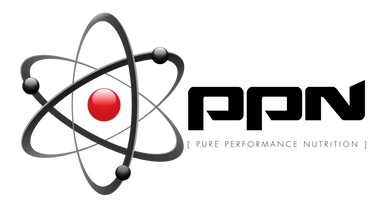If you have a fitness goal, whether it is to lose fat, gain muscle or just keep healthy and fit, you will need to live a lifestyle that is conducive to this goal. It will be necessary to adjust your diet and perform some type of exercise program on a consistent basis. We have all seen the infomercials, advertisements, and social media influencers that claim to have some quick fix, or overnight program that will get you to look like a super model, celebrity or professional bodybuilder. Unfortunately, there is no such magic. If you want results you have to work a little.
The good news is, we are going to show you what it takes to reach your goals and how to achieve them in the shortest amount of time possible.
There are basically four components to effectively achieving your fitness goals. The following is a basic overview of these components. To learn more about each of these components and for a Personal Nutrition and Exercise Plan customized for your specific goal, visit “The Four Components of Fitness” section of this website.
DIET or PROPER FOOD INTAKE
Your diet should consist of enough food (calories) to feed your muscles and fuel your activity while still creating a calorie deficit. This will create a need for your body to utilize stored calories (fat). Your daily caloric intake is determined by your lean body mass, activity level, gender, age and previous diet history. Your total calories should be spread evenly throughout the day. For example, if you are on a 2000 calorie diet, you could eat five meals of 400 calories each. It is necessary to eat a minimum of four meals per day., or three meals and a snack. Each meal should be balanced with enough protein, carbohydrates and fat to keep your blood sugar level stable, keeping you satisfied for the longest time possible and supporting your energy needs. The biggest mistake most people make when starting a diet is not eating enough calories. Reducing your calories too dramatically can cause you to lose muscle, slow your metabolism and decrease your energy.
CARDIOVASCULAR or AEROBIC EXERCISE
Cardiovascular or aerobic exercise is critical to the long term success of your fitness program and your overall health. The goal is to get as many large muscles as possible working consistently in order to burn the greatest amount of calories. Your cardiovascular or aerobic program should consist of the least amount of work necessary to initiate a change. It should not be altered until the body adapts (is no longer losing fat). Once your body adapts you will need to alter your workout by: 1) increasing the intensity; 2) changing the mode (bike, treadmill, etc.); 3) increasing the frequency (days per week); and 3) by increasing the amount of time per session. More is not necessarily better when it comes to cardiovascular exercise for fat loss. If you do too much too soon, you can actually cause your body to hit a plateau.
RESISTANCE or WEIGHT TRAINING
Weight training is the most commonly overlooked component of fat loss, especially among females. It is a very important component in achieving your fitness goal whether you are male or female. Weight training will create a need for the body to preserve or increase lean muscle tissue. This is important because calories and fat are only burned by muscle tissue. Therefore, the more muscle you keep or gain (depending on your goal), the more calories and fat you can burn. Additionally, the act of training with weights burns a tremendous amount of calories and can increase your resting metabolic rate (the amount of calories you burn while at rest). Weight training actually has a greater effect on your metabolism than cardiovascular exercise.
NUTRITIONAL SUPPLEMENTS
Although not essential, nutritional supplements can also be a very important component in achieving your fitness goals. Supplements can provide additional nutrients your body needs while dieting and exercising without adding unnecessary calories. For example, a good vitamin and mineral formula is highly recommended. As ergogenic aids, nutritional supplements can help you significantly increase your performance and your ability to achieve your goals faster. Protein powders and meal replacement drinks are excellent sources of dietary protein and nutrients and are convenient supplements for meals.
CONCLUSION
So far, we have given you a basic overview of each component of your fitness program. The key to achieving and maintaining a great body is consistency in applying these four components.
To learn more about each of these components in greater detail and for a Personal Nutrition and Exercise Plan customized for your specific goal, visit “The Four Components of Fitness” section of this website.
